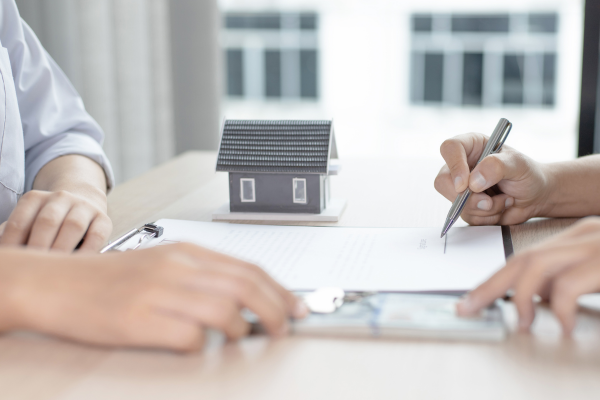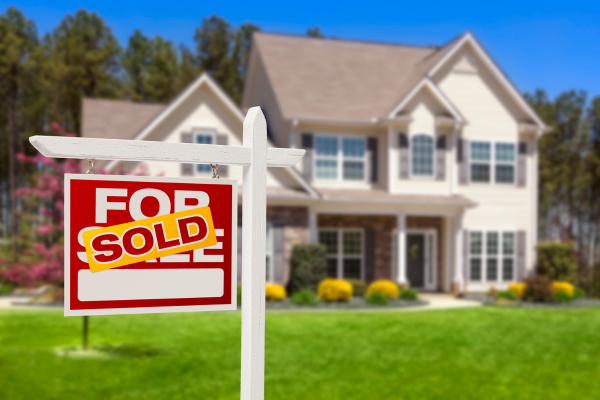This originally aired on the Catholic Faith Network’s show CFN Live: https://youtu.be/QRTB5ycweRA Why does a…
As the use and installation of solar panels in residential homes become more prevalent, we are increasingly facing the question with our clients as what to do if they decide to sell their home after solar panels have been installed.
Studies have shown that homes that have solar panel systems installed tend to sell more quickly and for greater value than comparable homes without solar panel systems installed. However, whether the installation of a solar panel system increases the value of the home can depend greatly on whether the solar panels are bought or leased.
A homeowner typically has four options relative to the payment for, installation of, and ownership of solar panel systems. The four options are as follows:
- Direct Cash Purchase – Ideally, a homeowner can purchase a solar panel system outright. However, most homeowners do not have the $15,000.00 to $20,000.00 necessary to make a single lump sum payment to the solar company and may need to turn to financing options (as covered under the next three options).
- Solar Leases – Where the solar company installs and owns the solar panel system and, in return, the homeowner makes scheduled lease payments (usually monthly) to the solar company. A solar lease typically has a term of 15 to 20 years and, upon the completion of the term of the lease, the homeowner will need to either execute a new lease with the solar company or have the solar panel system uninstalled. Depending on the terms of the solar lease, the homeowner may have an option to purchase the solar panel system upon the completion of the term of the lease.
- Solar Power Purchase Agreements (PPAs) – Where a solar company buys, installs, and maintains a solar panel system on the home and the homeowner purchases the energy generated by the system on a per-kilowatt-hour basis through a long-term contract at rates competitive with the local retail electricity rate.
- Solar Loans – Where the homeowner borrows money from a lender or solar company to install a solar panel system and the homeowner makes scheduled loan payments (usually monthly) to the lender or solar company. With this approach, the homeowner will own the solar panel system once the loan has been satisfied. That said, the loan can either be secured, and require an asset (such as the home) as collateral to secure the loan, or unsecured, in which the lender or solar company does not require an asset to collateralize the loan other than the solar panel system itself.
Ordinarily, the installation of a solar panel system does not actually increase the value of the home unless the solar panel system is owned by the homeowner at the time of the sale. As such, where the homeowner owns the solar panel system, the value of the system can be incorporated into the value of the home, therefore increasing the price at which you may sell the home. The title of the solar panel system will simply be transferred to the purchaser upon the transfer of title to the home at the closing.
However, if the homeowner does not own the solar panel system, the homeowner has three ready options available to them should they decide to enter into a contract to sell the home:
- Pay The System Off In Full Prior to the Sale – An ideal option if fiscally possible for the homeowner. The homeowner satisfies the terms of the loan, obtains ownership of the solar panel system, and thereafter incorporates the value of the solar panel system into the sales price of the home.
- Including the Balance of the Loan Into the Asking Price – An option that may be available if the homeowner has a solar loan or a solar lease with an option to purchase the solar panel system. The homeowner includes the balance of the loan in the asking price for the home and the balance of the loan is paid off at closing using the proceeds from the sale. Therefore, the solar panel system would be purchased at closing and ownership would go to the purchaser. However, this option requires the purchaser to desire ownership of the solar panel system and have the financial ability to essentially purchase the solar panel system at closing.
- Transfer the Loan or Lease to the Purchaser – This option depends entirely on the terms of the solar loan or lease. If allowed by the terms of the solar loan or lease, the purchaser assumes the solar loan or lease at closing and continues to make the scheduled monthly payments to the lender or solar company. By pursuing this option, the homeowner frees themselves from the obligations and responsibilities of the solar loan or lease and the purchaser assumes said obligation and responsibilities. That said, the terms of solar loans and/or leases can vary, and the loan or lease may not allow for the transfer of the loan or lease to a third party (i.e. purchaser).
It is important that where the homeowner is contemplating the sale of a home with a solar panel system installed via a solar loan or lease, the homeowner review the terms of the solar loan or lease with the lender, solar company, or an attorney to ascertain the possibility of transferring the solar loan or lease to a prospective purchaser.
In all, the existence of a solar panel system on the home should not be a deterrence to a homeowner in the potential sale of the home. Rather, the homeowner should do diligent research into the possibility of paying off the balance of the existing loan or their capability of transferring the loan or lease prior to entering into a contract with a prospective purchaser.




Thanks for sharing this article.